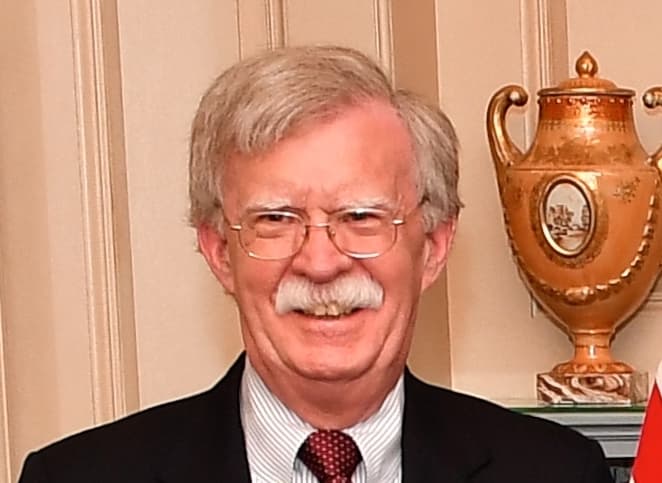The Right Role for Bolton
A presidential campaign by the former UN ambassador would do one important thing — restore foreign policy as a topic of debate in the Republican primaries.

The prospect that Ambassador John Bolton might enter the presidential race for 2024 is certainly welcome here at The New York Sun. It’s way too soon for endorsements, and we’ve had our innings with our crusty ex-envoy to the United Nations. We’re of the view, though, that a Bolton presidential campaign would do one important thing — restore foreign policy as a topic of debate in the Republican primaries.
That’s what we take from C.M. Vik’s latest column on her conversations with the ex-aide, who, while an Assistant Secretary at the State Department under President George H.W. Bush, led the campaign to repeal the UN’s resolution defining Zionism as a form of racism. Mr. Bolton managed to produce one of America’s few triumphs at the world body. And rarely have we needed more than we do now a good campaign debate on foreign policy.
This has been sand in our hatband since President Trump started complaining about the “endless wars.” We don’t gainsay that his point resonated. When it comes to war, endlessness is no virtue. It might be better than defeat but is no substitute for victory. We share many elements of the libertarian view, such as it has been advanced by, say, Congressman Ron Paul, particularly the concern of the liberty camp that war is a friend of the state.
At the same time, America was not the party in the wrong in the Cold, Korean, Vietnam, Iraq, or Afghan wars, or the Global War on Terror. We view the Democrats as having been unhelpful in most of those conflicts, particularly such figures as, say, John Kerry and Robert McNamara, who counseled defeat and appeasement and voted or argued against resupplying or relieving our GIs even while they were in combat. We’d have stuck with all those fights.
Ms. Vik reports that Mr. Bolton describes his own platform as “fairly standard Republican fare,” with a libertarian edge. “Cut taxes, reduce regulation, get the government off the back of the people and let the economy grow.” Yet what really defines Mr. Bolton, Ms. Vik writes, is the idea that, as he puts it, “the key to protecting the American way of life is a strong national defense.” We need to believe in victory, she characterizes him as saying.
What that means is a serious increase in defense spending, which Mr. Bolton calls “a hard issue to raise” but one that he’s prepared to press. Mr. Bolton reckons that we need “very significant increases in the defense budget and in our sales of weapons to friends around the world.” He argues that “if our military isn’t really capable of defending Taiwan without being useless everywhere else in the world, that says the military’s too small.”
To Mr. Bolton, Ms. Vik writes, a presidential campaign means explaining the threats we face and laying out a straightforward case for why a muscular national defense is important. This became part of the Republican Party ideology with the rise of Ronald Reagan — and stayed that way until the accession to office of President Trump, though even there, while he campaigned against “endless” wars, he understood the need to build up our national defenses, and raised the military budget to historic levels.
It won’t be long before the Republican primaries. It would be nice to have on stage a candidate with a steady, strategic, voice for a strong foreign policy — one who recognizes, as Mr. Bolton does, the failure of such post-World War II institutions as the UN and the importance of a global coalition to contain China. And sees such a foreign policy as an essential part of the big tent Republicanism that Reagan ran on when a GOP candidate won 49 states.

